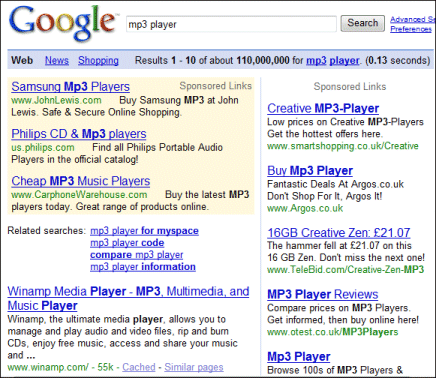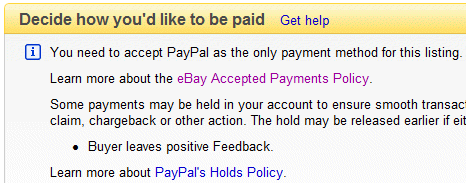Former eBay scientist Raghav Gupta – who composed a farewell poem – has given an interview in which he talks about the difficulty of getting innovations deployed at eBay:
There is actually a lot of good innovation happening nowadays in terms of demos and prototypes and contests, but hardly anything worthwhile ever makes it out. The personal cost of having to push something down the approval and implementation pipeline is so great that very few are able to persevere. And whatever does get out usually suffers through so many Dilbertian compromises that it is missing the core aspect of the original idea.
You should never judge a company on the basis of comments from departed employees (though Gupta left of his own volition). That said, there is plenty of evidence that eBay is pursuing a policy that is punishing sellers (that is, its customers) in favour of buyers, as well as increasing its fees. The bizarre ratings policy, in which sellers rated as good by buyers get suspended, is one example. Good sellers get suspended for other reasons too, apparently, and I have learned a new bit of jargon as a result – “dolphin”:
Dolphins are those sellers that get suspended by eBay because their system automatically singles them out for skirting the rules or something more grievous, yet if a human actually looked at the sellers account they would find it was a simple mistake and now they are screwed.
according to Randy Smythe, who is chronicling Dolphin stories on his blog.
Another thing I’ve noticed is that eBay’s default search results (which you cannot change globally) are now ordered in what it calls “Best Match”, according to an unknown algorithm, rather than the old system of “Time: Ending soonest”. This change gives eBay the ability to promote sellers it likes at the expense of sellers it does not like – though I do not know whether it uses Best Match in this way. If your items are always several pages away according to “Best match”, it is unlikely you will make many sales. Sellers are now having to discuss “Best Match” optimization techniques similar to Search Engine Optimization on the wider web.
Plenty of frustration for small sellers, then, and the trend at eBay seems to be towards fixed-price sales from large vendors, though of course you can still grab an auction bargain on occasion.
Gupta suggests that sellers get together and invent an alternative eBay on a mutual ownership basis. A nice idea, though eBay is dominant and it won’t be easy to dent its market share. Most disgruntled sellers seem to head for Amazon marketplace.


